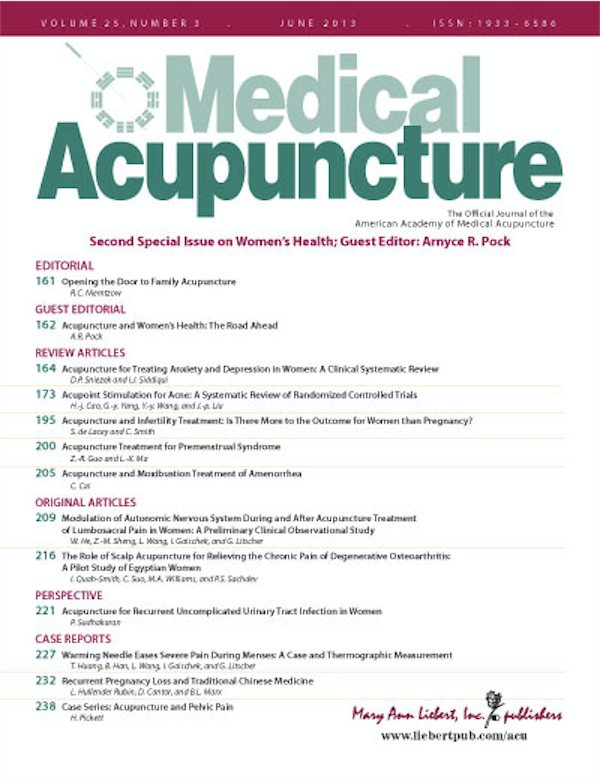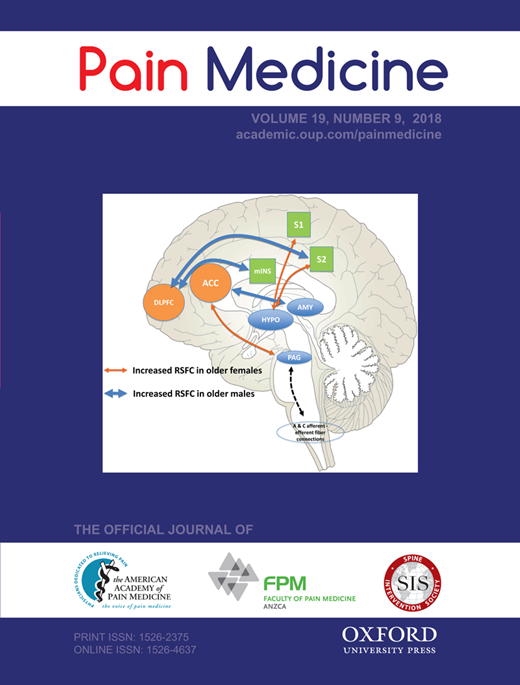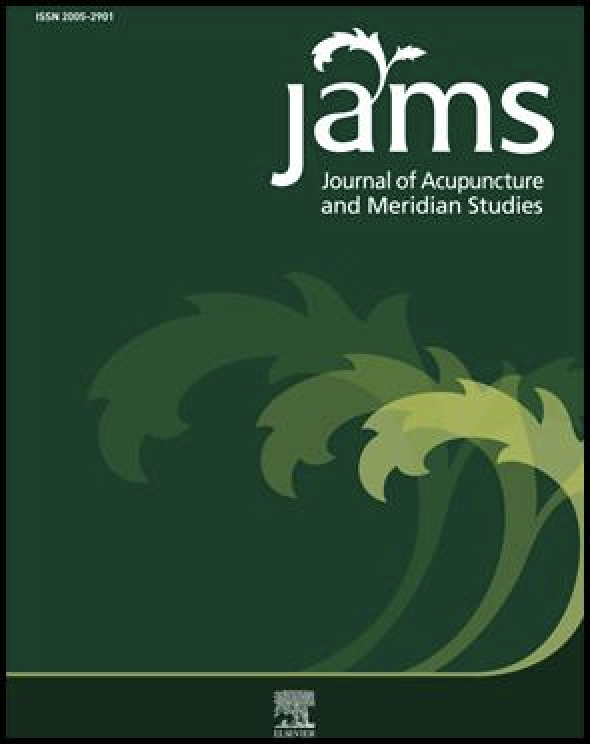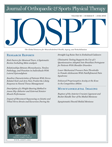Heel Pain
How to submit an article:
- Registered users can submit any published journal article that has a unique DOI (Digital Object Identifier) name or link to Research Hub.
- For example, you can paste the full DOI link:
https://doi.org/10.1109/5.771073or just the DOI name:10.1109/5.771073into the field above and click submit. - The person who is first to submit a valid article to Research Hub will forever be credited for it, and every article submission earns you +6 Research Points.
Also known as: Plantar Fasciitis, Plantar Heel Pain
Published research studies are articles that present the findings of original research that has undergone a peer-review process and has been made publicly available in scholarly journals, books or other media.

Acupuncture for Plantar Fasciopathy: A Randomized Controlled Trial
2023 Feb 01 Medical Acupuncture Cagle SD, Covey C, Farrell J, Sharon DJ, Crawford P
Randomised Controlled Trial Heel PainAcupuncture combined with a home-exercise program significantly reduces pain in patients suffering from plantar fasciopathy more than just a home exercise program.

Is Dry Needling Effective for the Management of Plantar Heel Pain or Plantar Fasciitis? An Updated Systematic Review and Meta-Analysis
2021 Mar 24 Pain Medicine Llurda-Almuzara L, Labata-Lezaun N, Meca-Rivera T, Navarro-Santana MJ, Cleland JA, Fernández-de-las-Peñas C, et al.
Moderate- to low-quality evidence suggests a positive effect of trigger point dry needling for improving pain intensity and pain-related disability in the short term and long term, respectively, in patients with plantar heel pain of musculoskeletal origin. The present results should be considered with caution because of the small number of trials.
Systematic Review Meta-Analysis Heel Pain
Comparison of electroacupuncture and manual acupuncture for patients with plantar heel pain syndrome: a randomized controlled trial
2020 Aug 18 Acupuncture in Medicine Wang W, Liu Y, Jiao R, Liu S, Zhao J, Liu Z
Randomised Controlled Trial Heel Pain Ankle Pain Electroacupuncture AcupunctureElectroacupuncture and manual acupuncture show similar effectiveness in relieving plantar heel pain syndrome with no significant difference between the two modalities.

Efficacy of electroacupuncture plus warm needling therapy for plantar heel pain: a randomised waitlist-controlled trial
2020 Aug 20 Acupuncture in Medicine Ho LF, Guo Y, Ching JYL, Chan KL, Tsang PH, Wong MH, et al.
Our findings suggest that EAWN therapy can relieve pain and improve function in middle-aged and older adults with PHP. Therefore, it could be a valuable treatment alternative for this condition.
Randomised Controlled Trial Warm Needling Electroacupuncture
Noninvasive, Multimodality Approach to Treating Plantar Fasciitis: A Case Study
2018 Aug Journal of Acupuncture and Meridian Studies Lee TL, Marx BL
This case study reports the effects of a multimodality approach including massage, gua sha, bleeding, acupuncture, and moxibustion to treat acute plantar heel pain.
Case Report Heel PainResearch insights are moderated by the Research Hub team and offer an at-a-glance overview of interesting research findings.

2023 Medical Acupuncture
Acupuncture combined with a home-exercise program significantly reduces pain in patients suffering from plantar fasciopathy more than just a home exercise program.
Randomised Controlled Trial
Acupuncture for Plantar Fasciopathy: A Randomized Controlled Trial
Cagle SD, Covey C, Farrell J, Sharon DJ, Crawford P

2020 Acupuncture in Medicine
Electroacupuncture and manual acupuncture show similar effectiveness in relieving plantar heel pain syndrome with no significant difference between the two modalities.
Randomised Controlled Trial Acupuncture Ankle Pain Electroacupuncture
Comparison of electroacupuncture and manual acupuncture for patients with plantar heel pain syndrome: a randomized controlled trial
Wang W, Liu Y, Jiao R, Liu S, Zhao J, Liu Z

2016 Journal of Orthopaedic & Sports Physical Therapy
Acupuncture, specifically needle-based and electroacupuncture, can potentially provide therapeutic benefits for carpal tunnel syndrome, Achilles tendinopathy, and shoulder injuries.
Systematic Review Back, Hip & Leg Pain Carpal Tunnel Syndrome Patellofemoral Pain Piriformis Syndrome Shoulder & Upper Limb Pain
Effectiveness of Acupuncture Therapies to Manage Musculoskeletal Disorders of the Extremities: A Systematic Review
Cox, J., Varatharajan, S., Côté, P., et al.

2012 Acupuncture in Medicine
There is evidence supporting the effectiveness of acupuncture for plantar heel pain comparable to that available for conventionally used interventions, such as stretching, night splints or dexamethasone.
Systematic Review Back, Hip & Leg Pain
The Effectiveness of Acupuncture for Plantar Heel Pain: A Systematic Review
Clark RJ, Tighe M

2011 Evidence-Based Complementary and Alternative Medicine
Acupuncture can provide pain relief to patients with plantar fasciitis.
Randomised Controlled Trial
Acupuncture treatment for plantar fasciitis: a randomized controlled trial with six months follow-up
Shi Ping Zhang , Tsui-Pik Yip, Qiu-Shi Li
Review Articles
Review articles summarise and critically evaluate the current state of research on a specific topic or field by synthesising multiple primary research studies.

Is Dry Needling Effective for the Management of Plantar Heel Pain or Plantar Fasciitis? An Updated Systematic Review and Meta-Analysis
2021 Mar 24 Pain Medicine Llurda-Almuzara L, Labata-Lezaun N, Meca-Rivera T, Navarro-Santana MJ, Cleland JA, Fernández-de-las-Peñas C, et al.
Moderate- to low-quality evidence suggests a positive effect of trigger point dry needling for improving pain intensity and pain-related disability in the short term and long term, respectively, in patients with plantar heel pain of musculoskeletal origin. The present results should be considered with caution because of the small number of trials.
Systematic Review Meta-Analysis Heel Pain
Effectiveness of Acupuncture Therapies to Manage Musculoskeletal Disorders of the Extremities: A Systematic Review
2016 May 31 Journal of Orthopaedic & Sports Physical Therapy Cox, J., Varatharajan, S., Côté, P., et al.
Systematic Review Carpal Tunnel Syndrome Piriformis Syndrome Shoulder Pain Patellofemoral Pain Shoulder & Upper Limb Pain Heel Pain Back, Hip & Leg PainAcupuncture, specifically needle-based and electroacupuncture, can potentially provide therapeutic benefits for carpal tunnel syndrome, Achilles tendinopathy, and shoulder injuries.

The Effectiveness of Acupuncture for Plantar Heel Pain: A Systematic Review
2012 Dec 12 Acupuncture in Medicine Clark RJ, Tighe M
Systematic Review Heel Pain Back, Hip & Leg PainThere is evidence supporting the effectiveness of acupuncture for plantar heel pain comparable to that available for conventionally used interventions, such as stretching, night splints or dexamethasone.
Clinical Trials
Clinical trials are research studies that involve people and are conducted to evaluate the safety and efficacy of new treatments or interventions, such as drugs, medical devices, or behavioural therapies.

Acupuncture for Plantar Fasciopathy: A Randomized Controlled Trial
2023 Feb 01 Medical Acupuncture Cagle SD, Covey C, Farrell J, Sharon DJ, Crawford P
Randomised Controlled Trial Heel PainAcupuncture combined with a home-exercise program significantly reduces pain in patients suffering from plantar fasciopathy more than just a home exercise program.

Comparison of electroacupuncture and manual acupuncture for patients with plantar heel pain syndrome: a randomized controlled trial
2020 Aug 18 Acupuncture in Medicine Wang W, Liu Y, Jiao R, Liu S, Zhao J, Liu Z
Randomised Controlled Trial Heel Pain Ankle Pain Electroacupuncture AcupunctureElectroacupuncture and manual acupuncture show similar effectiveness in relieving plantar heel pain syndrome with no significant difference between the two modalities.

Efficacy of electroacupuncture plus warm needling therapy for plantar heel pain: a randomised waitlist-controlled trial
2020 Aug 20 Acupuncture in Medicine Ho LF, Guo Y, Ching JYL, Chan KL, Tsang PH, Wong MH, et al.
Our findings suggest that EAWN therapy can relieve pain and improve function in middle-aged and older adults with PHP. Therefore, it could be a valuable treatment alternative for this condition.
Randomised Controlled Trial Warm Needling Electroacupuncture
Acupuncture treatment for plantar fasciitis: a randomized controlled trial with six months follow-up
2011 Jan 15 Evidence-Based Complementary and Alternative Medicine Shi Ping Zhang , Tsui-Pik Yip, Qiu-Shi Li
Randomised Controlled Trial Heel PainAcupuncture can provide pain relief to patients with plantar fasciitis.
Study Protocols
Published study protocols are detailed plans that outline the objectives, methodology, statistical analyses, and organisation of a research study that have been made publicly available for others to review and use as a reference.
Presentation Slides

Randomised Controlled Trial
Acupuncture combined with a home-exercise program significantly reduces pain in patients suffering from plantar fasciopathy more than just a home exercise program.
Cagle SD, Covey C, Farrell J, Sharon DJ, Crawford P

Randomised Controlled Trial
Electroacupuncture and manual acupuncture show similar effectiveness in relieving plantar heel pain syndrome with no significant difference between the two modalities.
Wang W, Liu Y, Jiao R, Liu S, Zhao J, Liu Z

Systematic Review
Acupuncture, specifically needle-based and electroacupuncture, can potentially provide therapeutic benefits for carpal tunnel syndrome, Achilles tendinopathy, and shoulder injuries.
Cox, J., Varatharajan, S., Côté, P., & Optima Collaboration

Systematic Review
There is evidence supporting the effectiveness of acupuncture for plantar heel pain comparable to that available for conventionally used interventions, such as stretching, night splints or dexamethasone.
Clark RJ, Tighe M

Randomised Controlled Trial
Acupuncture can provide pain relief to patients with plantar fasciitis.
Shi Ping Zhang , Tsui-Pik Yip, Qiu-Shi Li
Executive Summary
Write an executive summary in the form of a blog article on the topic of "Research into Chinese medicine treatment for Heel Pain" summarising the research below and using language that can be easily understood by patients and avoiding medical jargon using a professional and caring tone of voice.
Write an executive summary in the form of a blog article on the topic of "Researched Chinese medicine treatments for Heel Pain" summarising the research below in an objective and easy to understand way, and using language that can be easily understood by patients. Group the article into Chinese medicine treatments first, followed by nutrition and other treatments. Avoid using medical jargon and use a professional and caring tone of voice.
Write me a concise but easy to understand executive summary on the topic of "Chinese medicine treatments for Heel Pain" based on the following research that I will give you. Your summary should be 2 paragraphs long in Australian English spelling and include references to the studies.
A Randomised Controlled Trial published in 2023 in the journal Medical Acupuncture found that Acupuncture combined with a home-exercise program significantly reduces pain in patients suffering from plantar fasciopathy more than just a home exercise program. A randomized controlled trial was set up at two U.S. Air Force military treatment facilities using subjects over 18 years old suffering from plantar fasciopathy. In total, 94 subjects were divided into two groups; those who only did home exercises and those who did home exercises and received acupuncture. The intervention group got acupuncture every other week, four times in total. There was no blinding and after an initial 12-week study, patients in the control group were given an option to cross over to acupuncture. The main focus of the trial outcomes was on reduction of pain and improved functioning, with scores taken at baseline, every visit, and six weeks after treatment. The outcome revealed that the control group had a notable reduction in pain at the end of the study, the intervention group had over a 50% reduction in pain immediately after every acupuncture session and a sustained reduction in pain at the termination of the study. In addition, subjects who crossed over to acupuncture from the control group observed a considerable drop in their pain scores instantly as well as at the 12 weeks post-acupuncture point. However, while function scores did enhance, there was no significant statistical difference.
A Randomised Controlled Trial published in 2020 in the journal Acupuncture in Medicine found that Electroacupuncture and manual acupuncture show similar effectiveness in relieving plantar heel pain syndrome with no significant difference between the two modalities. In this research, participants were randomly divided into two groups to receive either electroacupuncture (EA) or manual acupuncture (MA) treatments. They underwent a course of 12 treatment sessions over a span of 4 weeks, followed by 24 weeks of follow-up. The study prioritized the assessment of treatment responders, who were identified as patients showcasing at least a 50% reduction from their initial worst pain intensity experienced during the initial steps in the morning after 4 weeks of treatment. The study encompassed 92 patients diagnosed with PHPS, enlisted between July 2018 and June 2019. A total of 78 patients (85% of the original group) successfully completed both the treatment and follow-up. The results highlight that after the 4-week treatment period, both the EA and MA groups experienced a decrease in heel pain and showed improved plantar function with no serious treatment-related adverse events. Interestingly, no significant differences were observed between the two groups in terms of pain intensity relief or in any secondary outcomes after 4 weeks of treatment and at follow-up points at 16 and 28 weeks.
A Systematic Review published in 2016 in the journal Journal of Orthopaedic & Sports Physical Therapy found that Acupuncture, specifically needle-based and electroacupuncture, can potentially provide therapeutic benefits for carpal tunnel syndrome, Achilles tendinopathy, and shoulder injuries. Methodology: The researchers executed a systematic review on multiple databases such as MEDLINE, Embase, CINAHL, PsycINFO, and Cochrane Central Register of Controlled Trials covering a period from 1990 to 2015. Their search was focused on identifying responsive randomized controlled trials, cohort studies, and case-control studies which focused on the effectiveness and safety of acupuncture therapies for musculoskeletal disorders. The Scottish Intercollegiate Guidelines Network criteria was used to evaluate the eligible studies. Furthermore, best-evidence synthesis was performed to sum up results from studies with low bias risk. A sensitivity analysis was also performed to comprehend the potential impact of excluding studies with high bias risk. Results: The comprehensive review identified 5180 articles, from which 15 were selected for final analysis (10 had a low risk of bias and 5 with a high risk of bias). Among other findings, the results showed that traditional needle acupuncture may outperform oral steroids and vitamin B1/B6 supplements for carpal tunnel syndrome and exercises for Achilles tendinopathy. Moreover, electroacupuncture might be superior than placebo for shoulder injuries. The extent of benefits offered by dry needling for plantar fasciitis remained equivocal. Traditional needle acupuncture didn't show significant advantage over placebo for upper extremity pain, or no intervention for patellofemoral pain, and findings for shoulder pain were inconclusive.
A Systematic Review published in 2012 in the journal Acupuncture in Medicine found that There is evidence supporting the effectiveness of acupuncture for plantar heel pain comparable to that available for conventionally used interventions, such as stretching, night splints or dexamethasone. Five randomised controlled trials and three non-randomised comparative studies were included. High quality studies report significant benefits. In one, acupuncture was associated with significant improvement in pain and function when combined with standard treatment (including non-steroidal anti-inflammatory drugs). In another, acupuncture point PC7 improved pain and pressure pain threshold significantly more than LI4. Other papers were of lower quality but suggest benefits from other acupuncture approaches.
A Randomised Controlled Trial published in 2011 in the journal Evidence-Based Complementary and Alternative Medicine found that Acupuncture can provide pain relief to patients with plantar fasciitis. This study demonstrates that acupoint PC7 has a specific effect for treatment of plantar fasciitis, and that the method of acupuncture treatment is both simple and safe. Further studies comparing acupuncture treatment with an inert placebo and conventional treatment as parallel arms are recommended to further elucidate the efficacy of acupuncture treatment for heel pain.
Moderation Tools
Topic
Sign In
Users not signed in are limited to viewing the 5 most recent items of content.
